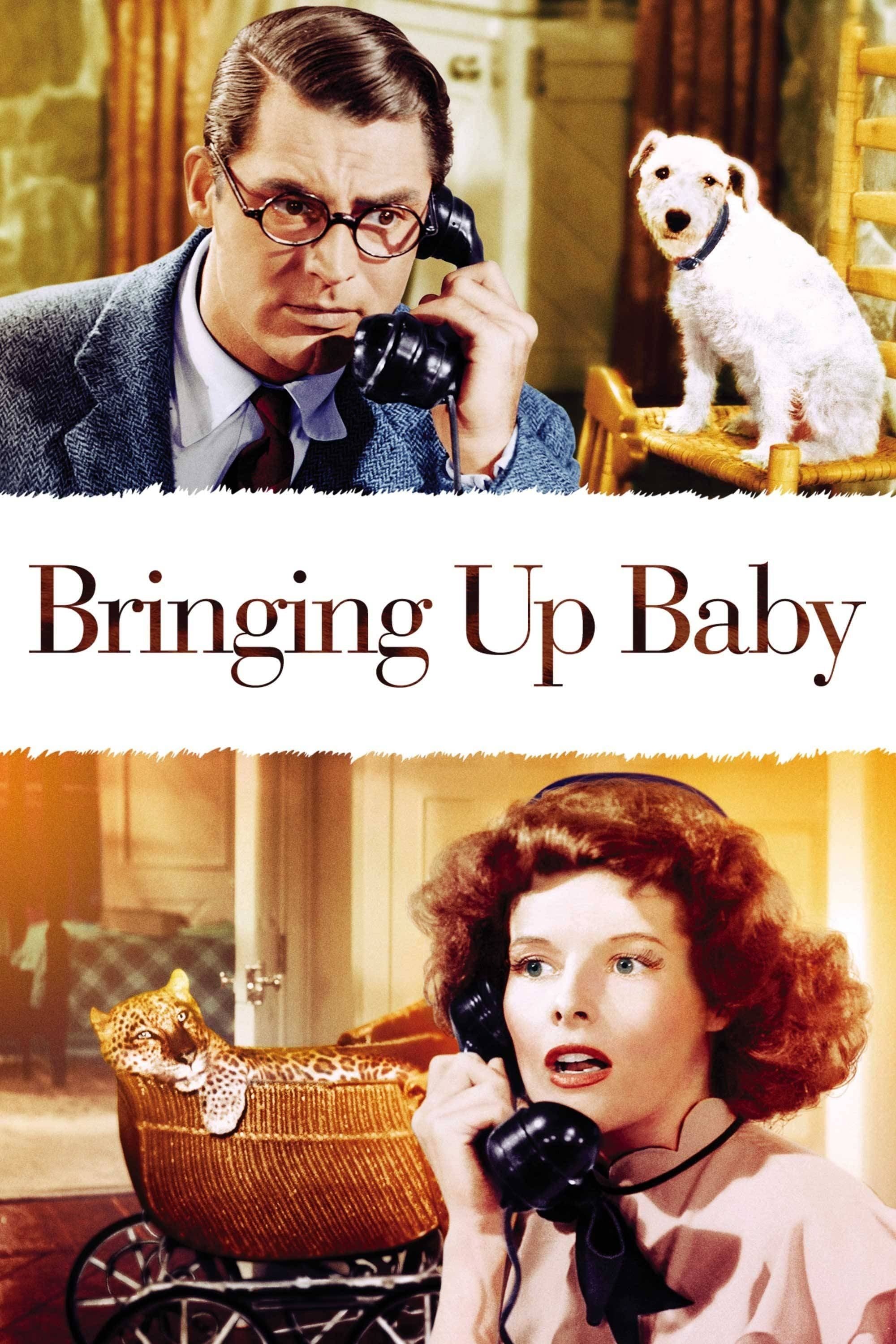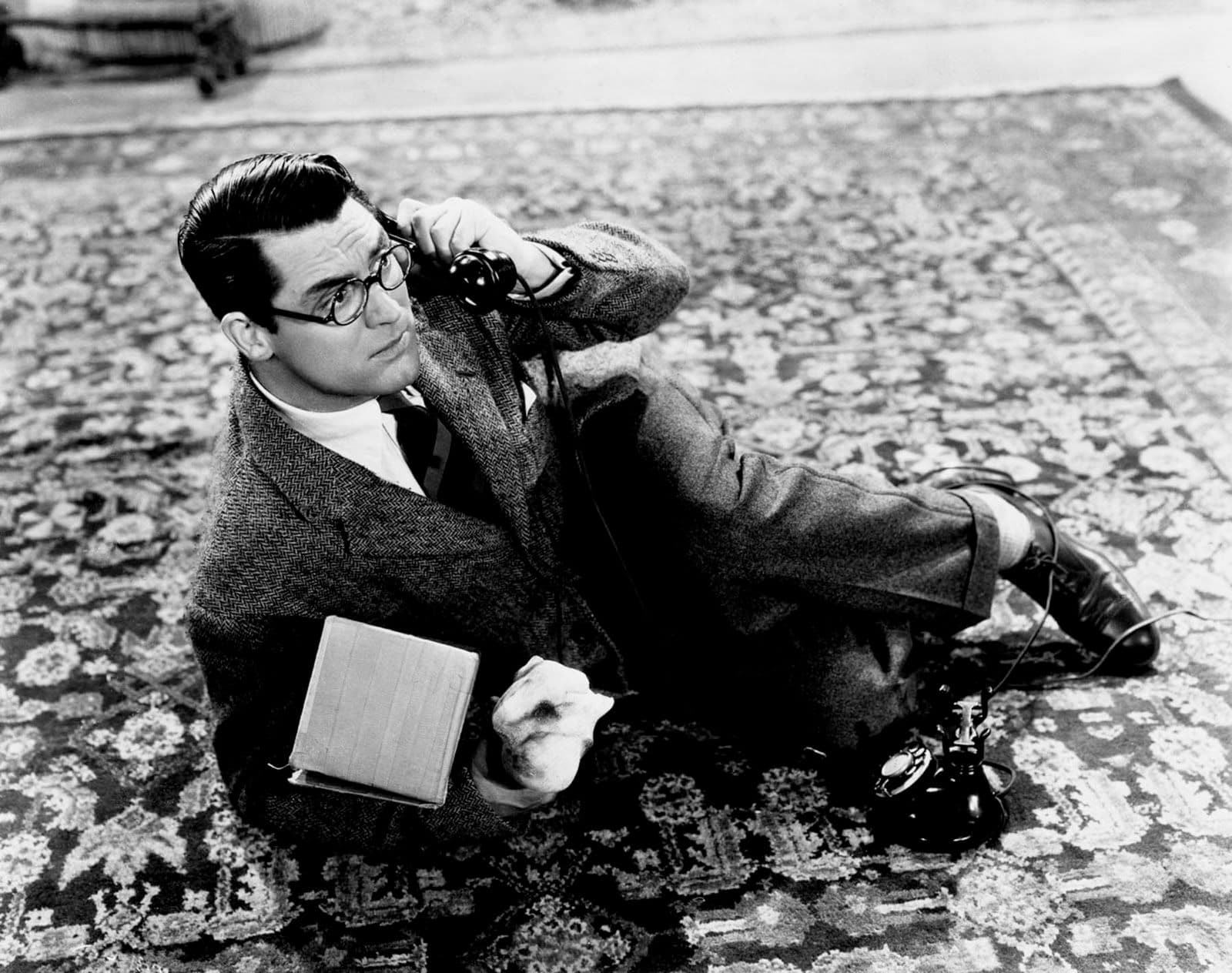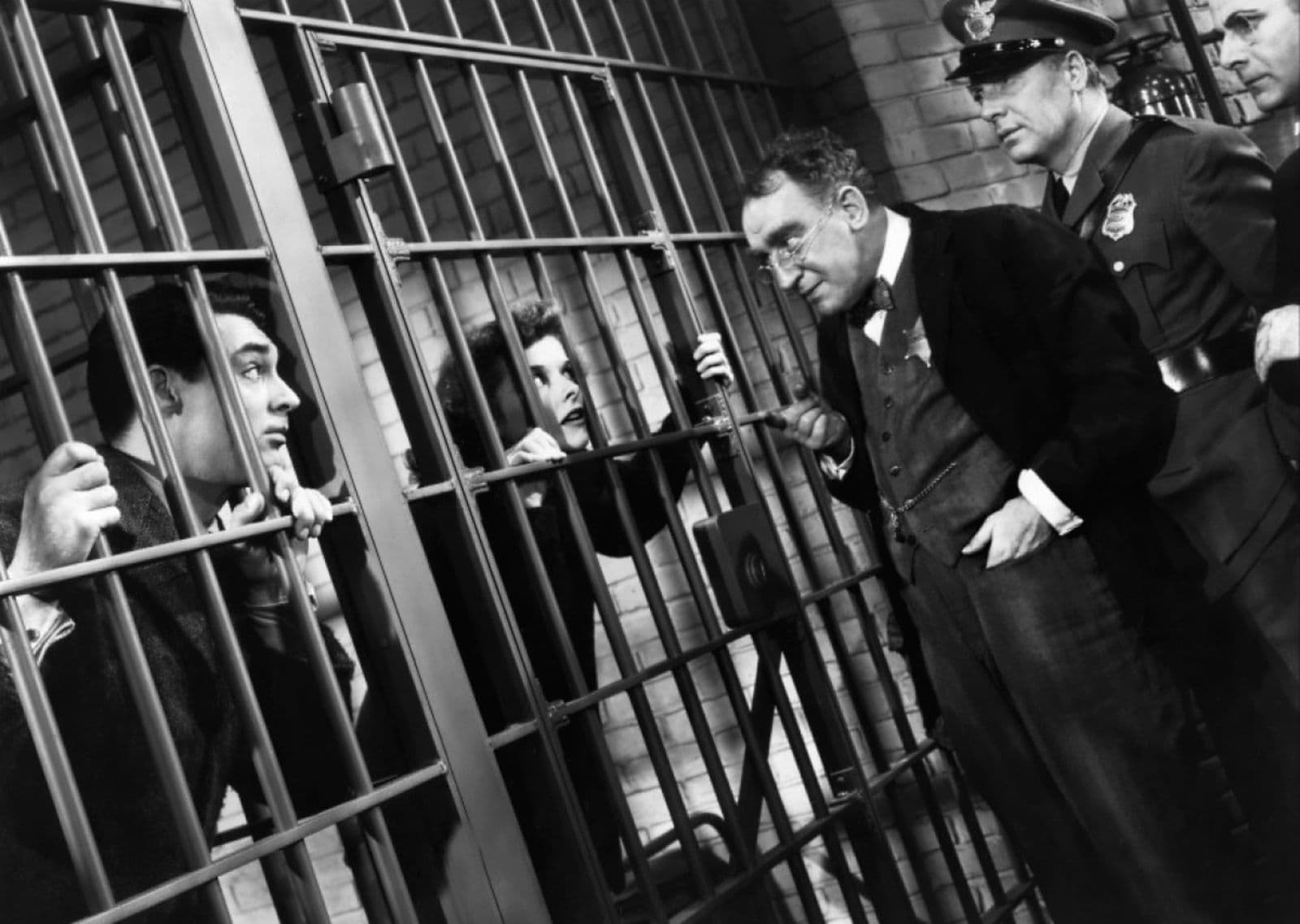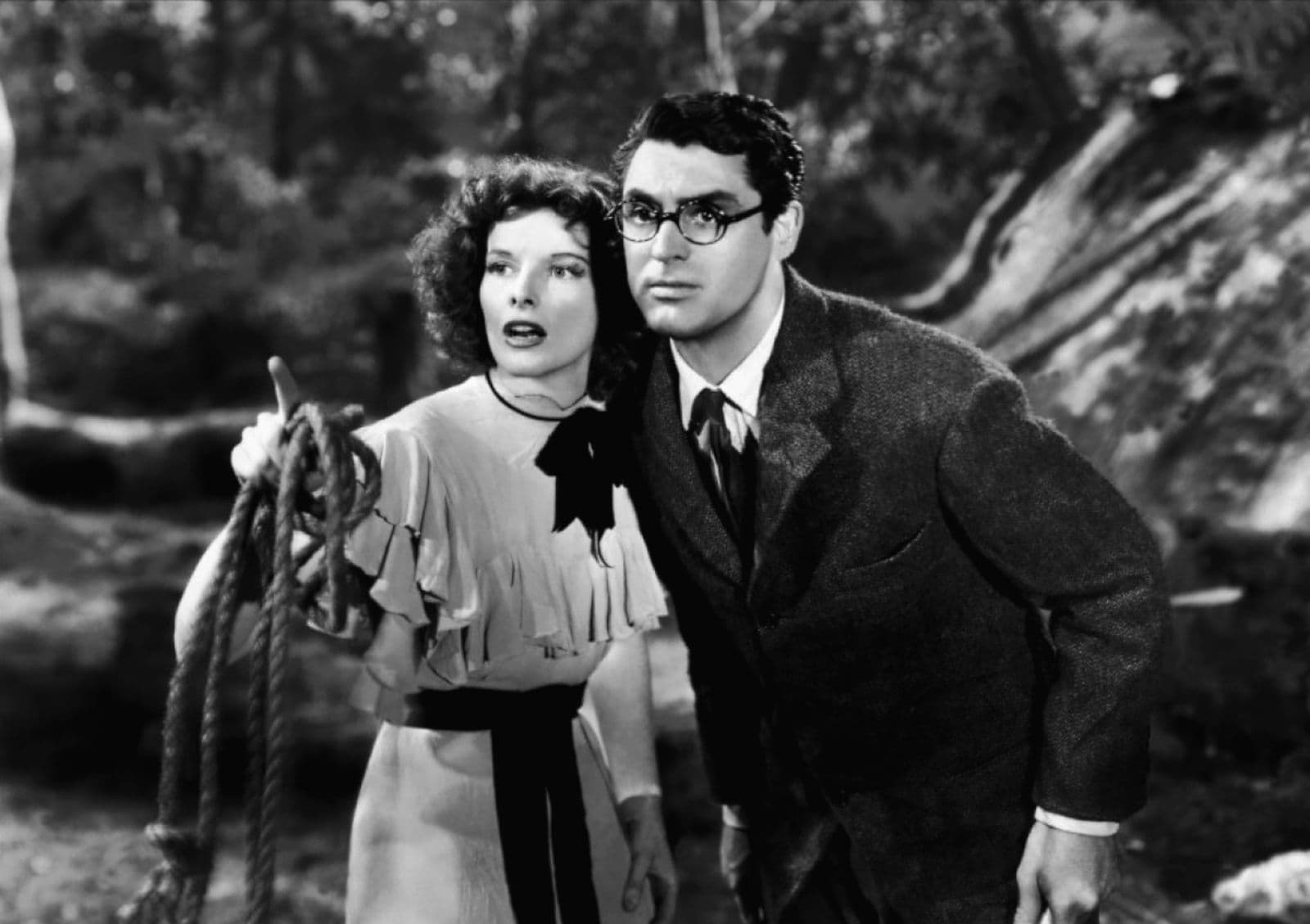
Bringing Up Baby
1938
Rate this movie
Average: 0.00 / 5
(0 votes)
Director
Bringing Up Baby! is an explosion of comedy and rhythm, a film that marked cinema history with its freshness and irreverence. Howard Hawks, with his directorial mastery, orchestrates a symphony of gags and paradoxical situations, creating a work that sets an absolute benchmark for the comedic verve of its dialogues. His direction, seemingly light and almost invisible, is in reality a prodigy of calculation and precision, capable of orchestrating chaos without ever losing control of the relentless pace, a trademark of the filmmaker who elevated his craft to true art. The film is enriched by the talent of Katharine Hepburn, who portrays Susan with irresistible talent and spontaneity, a force of nature that erupts like a cyclone into the world's rigidity, and by the perennially ironic aura of Cary Grant, perfect in the role of the clumsy paleontologist David Huxley. Grant, an actor of extraordinary versatility, here sublimates his sophisticated clumsiness and his capacity for reaction, making David a model of contained exasperation that comically implodes under the pressure of the chaos unleashed by Susan. The chemistry between the two is palpable, a duet of counterpoints that elevates every exchange into a small performative work of art. Bringing Up Baby! is a triumph of sophisticated comedy and brilliant dialogues, a film that helped define the canons of screwball comedy, a genre that captured the free and nonconformist spirit of the 1930s.
Screwball Comedy, emerging powerfully during the Great Depression era and under the moralizing shadow of the Hays Code, is characterized by its frantic pace, brilliant and often absurd dialogues, paradoxical situations, and eccentric characters, often belonging to high society. Plots are often based on misunderstandings, improbable coincidences, and paradoxical situations that defy logic and common sense, serving as a vehicle to subvert rigid social and gender conventions. The genre allowed for addressing forbidden themes, such as sexuality or divorce, through the ruse of innocuous chaos, concealing poignant criticism beneath a veneer of lightness. Hawks' film perfectly replicates this model, becoming its archetype and culmination. It is a perfect example of how comedy can be intelligent and entertaining at the same time, without resorting to vulgarity or stereotypes. Hawks, with his elegant and dynamic direction, manages to maintain a relentless pace and create an atmosphere of joy and lightheartedness that infects the viewer, sweeping them into a whirlwind of events that leave no room to breathe. His ability to stage chaos with millimeter precision, from the wild chases across the golf course to the overlapping dialogues, reveals a technical and narrative mastery that few have matched.
David Huxley, a timid and awkward paleontologist, completely immersed in the dusty and orderly rationality of his dinosaur bones, is about to marry the rigid and conventional Alice Swallow, an embodiment of bourgeois stability and decorum. But his plans are disrupted by his encounter with Susan Vance, an extravagant and unpredictable young heiress whose logic is dictated not by reason, but by impulse and an irresistible, almost childlike, zest for life. Susan, in love with David, drags him into a series of absurd and comical situations, involving a domestic leopard named Baby – a perfect symbol of untamed nature erupting into civilization – an eccentric millionaire aunt, a dog that steals a dinosaur bone, and an endless succession of misunderstandings and quid pro quos. David, initially annoyed by Susan's behavior, which he sees as a threat to his orderly existence, eventually succumbs to her charm and falls in love with her, but not before being "disintegrated" and rebuilt from the ground up, in a process of comical intellectual castration followed by emotional liberation, typical of screwball comedy.
The plot, though slender and at times surreal, almost dreamlike in its illogicality bordering on the burlesque, is a pretext for creating a series of hilarious gags and brilliant dialogues. Hawks plays with comedic timing, audience expectations, and genre conventions, creating a work that is a true precision mechanism of comedy, where every piece, every line, every reaction, is calibrated to maximize the effect. Scenes, such as the unforgettable prison sequence or the adventurous leopard chase, are perfect choreographies of controlled chaos. Bringing Up Baby! is a film that has had a major impact on cinema history and popular culture. Its influence is visible in many subsequent comedies that have re-proposed its typical elements: the frantic pace, brilliant dialogues, paradoxical situations, and eccentric characters. Works like George Cukor's The Philadelphia Story (1940, not 1949 as erroneously indicated in the original note), which again features Hepburn and Grant as protagonists in another love triangle under the sign of social disillusionment, Billy Wilder's Some Like It Hot (1959), which pushes cross-dressing and absurdity to the extreme, or Frank Capra's Arsenic and Old Lace (1944), with its black humor and bizarre characters, owe a great intellectual debt to this film, drawing from its comedic lexicon and its ability to blend farce with psychological depth. The influence of Bringing Up Baby! also extends to television series like Friends and Sex and the City, which adopted the element of brilliant dialogues and comedic situations related to interpersonal relationships, adapting them with the sensibility of their own time, demonstrating how the "battle of the sexes" model and courtship through conflict is a narrative evergreen. From a historical perspective, Bringing Up Baby! is interesting because it reflects the spirit of the era, with its focus on individual freedom, nonconformity, and the rejection of social conventions, at a time when America sought to emerge from the Depression and redefine its identity. The character of Susan, with her spontaneity and independence, which lead her to challenge expectations and subvert masculine and academic logic, can be read as an anticipation of feminist movements that would develop in subsequent years. Certainly a nuance stripped of any burdensome contingency and overt political intent, but no less radical in its celebration of assertive and liberating femininity. Despite a lukewarm box office reception upon its release – perhaps too far ahead of its time for the tastes of an audience accustomed to more linear comedies – Bringing Up Baby! was later recognized by critics as an absolute masterpiece, an unmatchable peak of screwball, a testament to Hawks' intelligence and the power of a genre that, concealing its wit behind farce, offers an enduring lesson on order and chaos, love and madness. In conclusion, a work that, while characterized by great narrative flair, invites us not to take ourselves too seriously and and to face life with a touch of irony and lightness.
Genres
Country
Gallery






Featured Videos
Official Trailer
Comments
Loading comments...